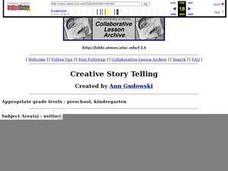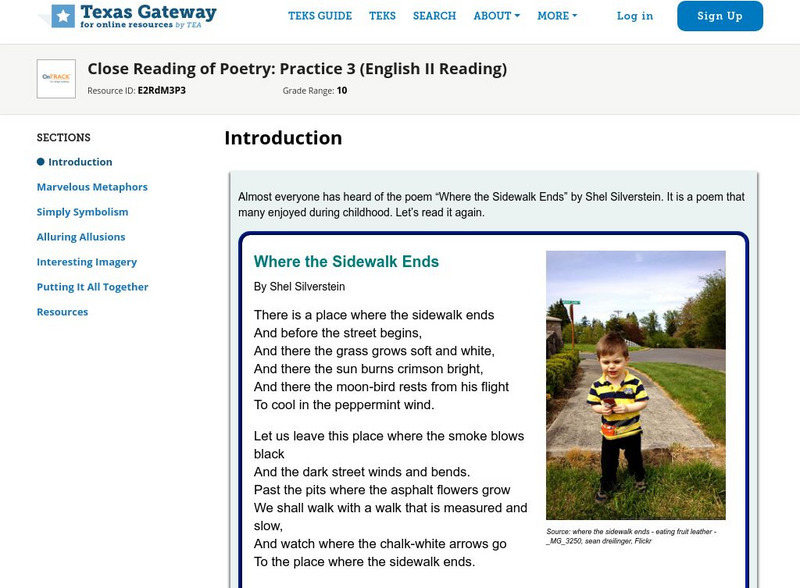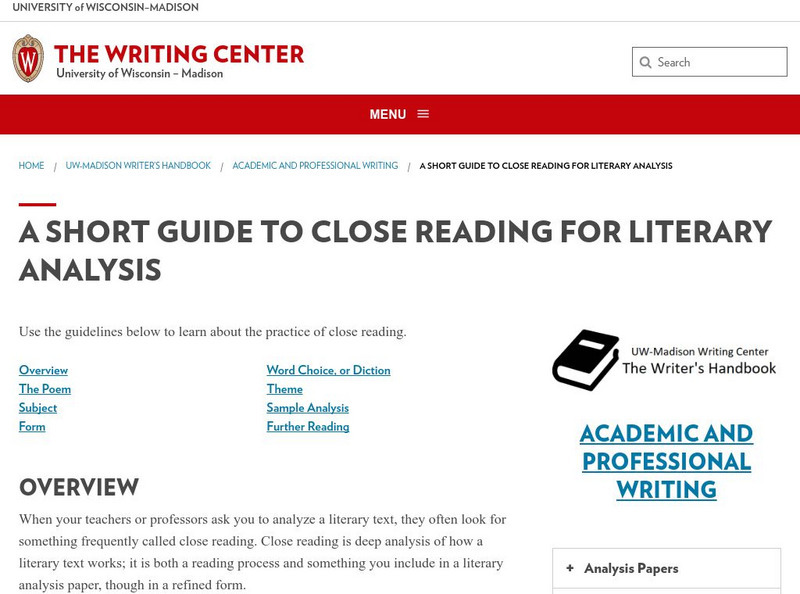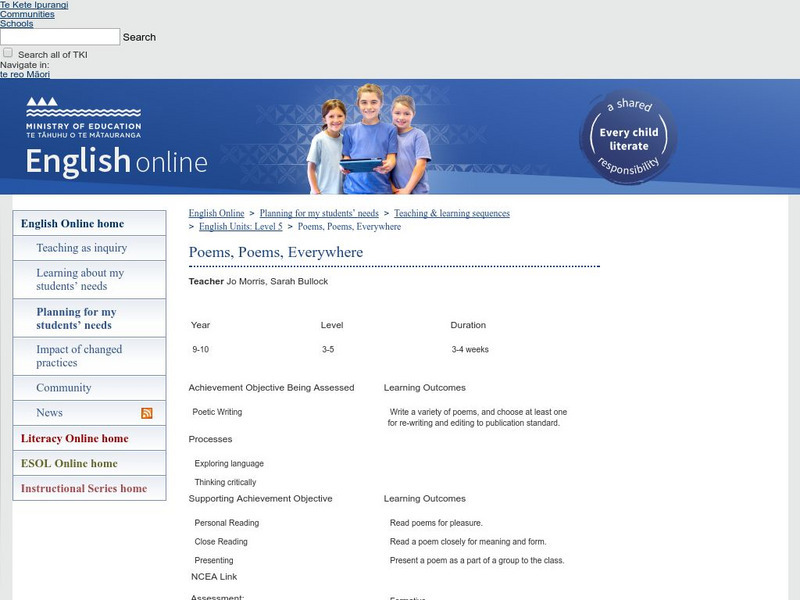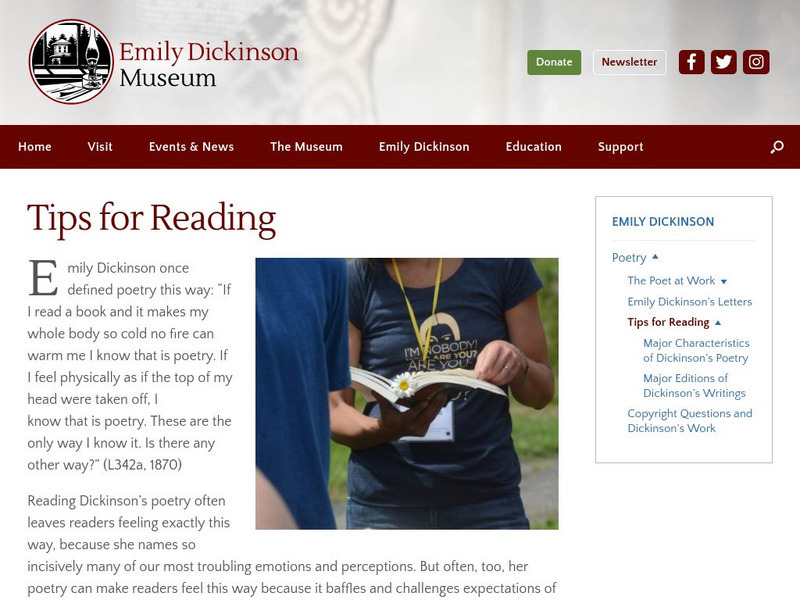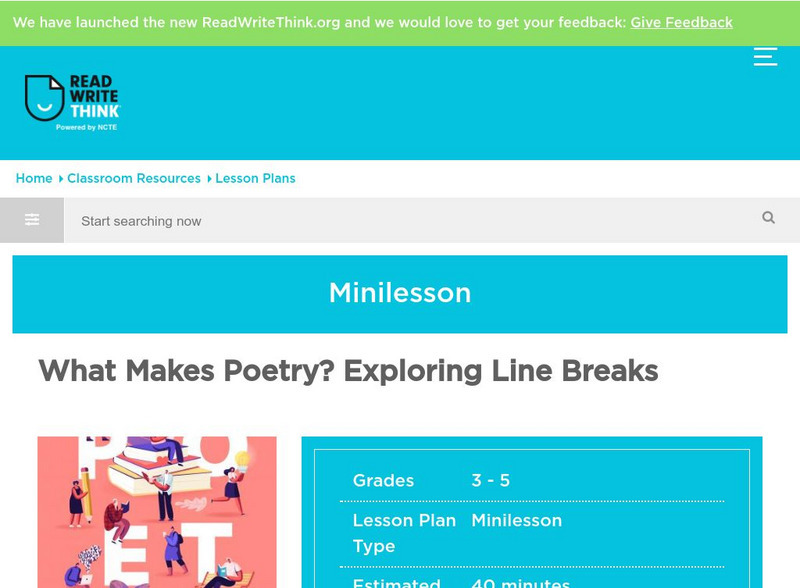Curated OER
Silly Snake
Students practice recognizing and sounding out the letter S. They listen to the alphabet song, "Sea Shell," by Amy Lowell, and view a large picture of a snake in the shape of the letter S. Each student points out other objects found in...
Curated OER
An Ounce of Prevention...
Students discuss current H.I.V. prevention strategies and adapt these strategies to address the spread of H.I.V. in developing countries. They analyze the results of an international AIDS conference called "The Urgent Search for an AIDS...
Curated OER
Snails
First graders investigate the organism known as a snail. They use snails to make observations of the body structure and the basic needs. The class is shown a chart and the teacher uses questions to induce student thinking. Then they...
Curated OER
Think Green
Students experience and practice compositing and recycling through hands-on-activities. They distinguish between which items from their trash can be recycled, composted and reused. The process for making recycled paper is also covered in...
Curated OER
Dr. Teeth and Dr. Gums To The Rescue
Second graders role play as dentists researching teeth and their care. They create a slide show showing how a character, Bear, can take care of this teeth explaining habitats, diets and teeth.
Curated OER
Creative Story Telling
Students listen to the beginnings of creative stories and then invent their own creative endings. Students use flannel boards to illustrate their stories.
Curated OER
A View of Yourself Through Famous Writers
High schoolers research famous quotes and discover one that describes themselves. They consider topics such as family and hobbies that will help others understand them. They present their information to the class.
Curated OER
ESL: Homonyms Quiz
In this homonyms instructional activity, learners complete a set of 20 multiple choice questions, choosing the correct homonym. Students may click on an "answer" button for immediate feedback. Labeled a quiz, but suitable for practice.
Texas Education Agency
Texas Gateway: Close Reading of Poetry: Practice 2 (English I Reading)
[Accessible by TX Educators. Free Registration/Login Required] Through this practice lesson, students will learn how to interpret poetry. They will learn how to spot a metaphor, to identify imagery, and be introduced to the terms...
British Library
British Library: Tennyson's the Charge of the Light Brigade: A Close Reading
In this activity, students will consider the context within which Alfred Lord Tennyson wrote 'The Charge of the Light Brigade'. The poem immediately captured the public imagination, where it has remained, testimony to heroic failure,...
British Library
British Library: Blake's 'The Tyger': A Close Reading
Through these teaching ideas, students are encouraged to explore William Blake's innovative approach to creating and displaying his poetry, developing their understanding of the multi-talented individual whose poems and artwork continue...
British Library
British Library: Wordsworth's Lyrical Ballads: A Close Reading
"Lyrical Ballads" grew out of the friendship and artistic collaboration between William Wordsworth and Samuel Taylor Coleridge. In this instructional activity, young scholars will explore a number of the poems in light of Wordsworth's...
Texas Education Agency
Texas Gateway: Close Reading of Poetry: Practice 3 (English Ii Reading)
Doing the exercises in this lesson will help students comprehend the poet's meaning by giving them practice in finding imagery, metaphors, symbolism, and allusions. RL.9-10.9 alllusions to other works.
Texas Education Agency
Texas Gateway: Close Reading of Poetry: Practice 2 (English I Reading)
[Accessible by TX Educators. Free Registration/Login Required] As you work through this lesson, you will learn how to interpret poetry. You will learn how to spot a metaphor, you will learn to identify imagery, and you will be introduced...
Texas Education Agency
Texas Gateway: Close Reading of Poetry: Practice 2 (English I Reading)
Read carefully in order to identify allusion, imagery, metaphor, and symbolism and to evaluate their impact on the meaning of a text. RL.9-10.9 alllusions to other works.
University of Wisconsin
Univ. Of Wisconsin: Writing Center: Guide to Close Reading for Literary Analysis
This guide discusses how to approach analysis of a literary text, with the main focus being on the poem "Design" by Robert Frost. It explains how to examine the subject, the form, word choice or diction, and the theme. In each section,...
Texas Education Agency
Texas Gateway: Literary Text: Close Reading of Poetry: Practice 3
This lesson will help you comprehend the poet's meaning by giving you practice in finding imagery, metaphors, symbolism, and allusions.
ReadWriteThink
Read Write Think: A Close Reading of Seamus Heaney's "Blackberry Picking"
Contains plans for two lessons that explain an inductive method for analyzing poetry. Seamus Heaney's "Blackberry Picking" is analyzed using this model as an example, although the method can be used on a variety of poems. In addition to...
Texas Education Agency
Texas Gateway: Close Reading of Poetry: Practice 3 (English Ii Reading)
Read carefully in order to identify allusion, imagery, metaphor, and symbolism, and evaluate their impact on the meaning of a text.
Texas Education Agency
Texas Gateway: Close Reading of Prose: Practice 2 (English Ii Reading)
Read carefully in order to identify diction, tone, and irony, and evaluate their impact on the meaning of a text.
New Zealand Ministry of Education
Nz Ministry of Education: Poems, Poems, Everywhere
Students will read poems for pleasure, read a poem closely for meaning and form, and present a poem as a part of a group to the class. They will write a variety of poems, and choose at least one for re-writing and editing to publication...
PBS
Pbs Learning Media: Elements of Poetry
Discover how literary techniques like figurative language, imagery, and symbolism contribute to the overall meaning of a poem. Explore how a poet establishes and builds on a theme and the difference between tone and mood. Through a close...
Other
Tips for Reading Dickinson's Poetry
Directions for engaging in close reading of Emily Dickinson's poetry are provided on this site.
ReadWriteThink
Read Write Think: What Makes Poetry? Exploring Line Breaks
This instructional activity explains how analyzing poetry is a many-layered process. This instructional activity introduces the special characteristics of poetry and leads students through a look at how poems are structured and why....







